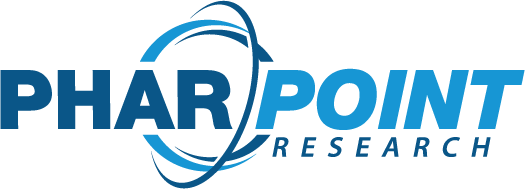DMCs and Their Role in Clinical Research
A Data Monitoring Committee (DMC), sometimes also referred to as a Data and Safety Monitoring Board (DSMB) or Data and Safety Monitoring Committee (DSMC), provides an independent assessment of a clinical trial’s safety, scientific validity, and integrity.
As an independent group, committee members (typically a group of clinicians and biostatisticians) review unblinded clinical trial data and advise sponsors on whether to continue, modify, or stop a trial.
While FDA strongly recommends the establishment of a DMC if trial subjects are at risk of serious morbidity or mortality, under current FDA regulations DMCs are not required in clinical trials except under 21 CFR 50.24(a)(7)(iv). This states that “an institutional review board (IRB) can approve a clinical trial in an emergency setting without requiring informed consent from all research subjects, provided certain requirements are met, including the establishment of an independent DMC.”
What’s in the updated 2024 Draft DMC Guidance?
In the nearly 20 years since FDA published its original guidance on DMCs, the role, prevalence, and operational complexity surrounding DMCs in the industry has grown. FDA’s 2024 updated guidance addresses these changes to better reflect how sponsors currently use DMCs.
In its current draft status, the February 2024 Draft DMC guidance is still undergoing review and may be subject to change following industry input. However, similar to the final guidance, this document should be carefully considered by Sponsors planning to use DMCs as a reflection of FDA’s current thinking.
So what’s changed between the 2006 DMC guidance and the updated February 2024 draft version?
Some of the updates reflected in the current draft guidance include:
- The expanded role of a DMC
- Maintaining independence
- Program-level DMCs
- Establishing a comprehensive DMC charter
- Training for DMC members
The expanded role of a DMC:
The updated guidance references an increased use of DMCs in trials, including an increase in circumstances where a DMC may be used along with a potential expansion for functions of a DMC. FDA notes “an increase in the use of DMCs in many disease areas not involving serious morbidity or mortality.”
For example, this may include the use of DMCs to evaluate safety data for rare disease trials, trials within vulnerable populations, or trials evaluating oncology drugs with highly specific targets.
Maintaining independence:
The updated guidance reinforces the need for a truly independent committee, including strengthened recommendations regarding conflicts of interest.
It mentions that “aside from being compensated for their duties on the committee, DMC members should have no ongoing financial relationship with a trial’s commercial sponsor (or its direct competitors).”
Additionally, guidance mentions that tension may arise in the planning and management of a DMC due to the need for both a “maximally independent DMC” and a DMC that is “well informed about the trial objectives, design, and conduct.” To resolve this tension, the agency suggests interaction between the sponsor and the DMC is permitted in a “carefully defined and limited manner.”
Program-level DMCs:
Sponsors are increasingly using DMCs to oversee an entire clinical development program rather than a single clinical trial.
Per FDA, “these are DMCs of separate but closely related trials (e.g., trials of the same product in different subject populations) that may consider sharing confidential interim data when unexpected safety issues arise in one trial and information from the two trials together may improve decision-making for both trials.”
Guidance notes that this may pose potential confidentiality problems, and DMC charters should carefully address how information can be shared when DMC members are not exactly the same across trials.
Establishing a comprehensive DMC charter:
The updated guidance notes a trend for longer, more detailed DMC charters and spells out what should, at minimum, be included in said charter.
Charters may be prepared by a Sponsor and presented to the DMC, or prepared by a DMC itself and agreed upon by a Sponsor.
FDA notes specific information that should be included within a charter, including details regarding:
- the composition of the committee,
- meeting information, schedule, and format,
- planned analyses by the committee and protection of data, and
- maintaining confidentiality of data.
Training for DMC members:
Unlike its 2006 predecessor, the 2024 draft guidance includes a section detailing training considerations for DMC members.
It remarks that members should understand their role within a DMC is different from participation as an investigator.
“Sponsors are therefore strongly encouraged,” it states, “to consider the learning and training requisites of members selected to serve on a DMC before involvement in their first DMC meeting and perhaps again later, if needed.”
Conclusion
In conclusion, the 2024 Draft Guidance for Data Monitoring Committees represents a significant update from FDA, addressing the evolving landscape of clinical trials over the past two decades.
As the guidance undergoes review and potential adjustments, sponsors and stakeholders are encouraged to consider draft recommendations carefully in the planning and execution of clinical trials.
About
PharPoint Research is a US-based, client-focused contract research organization (CRO) that helps sponsors meet their study goals.
As part of PharPoint’s data monitoring committee services, we act as an independent partner to sponsors that can support committee members and manage logistical challenges.
For more information about how PharPoint can support your data monitoring committee, visit our DMC Services page or schedule a call with our team.



